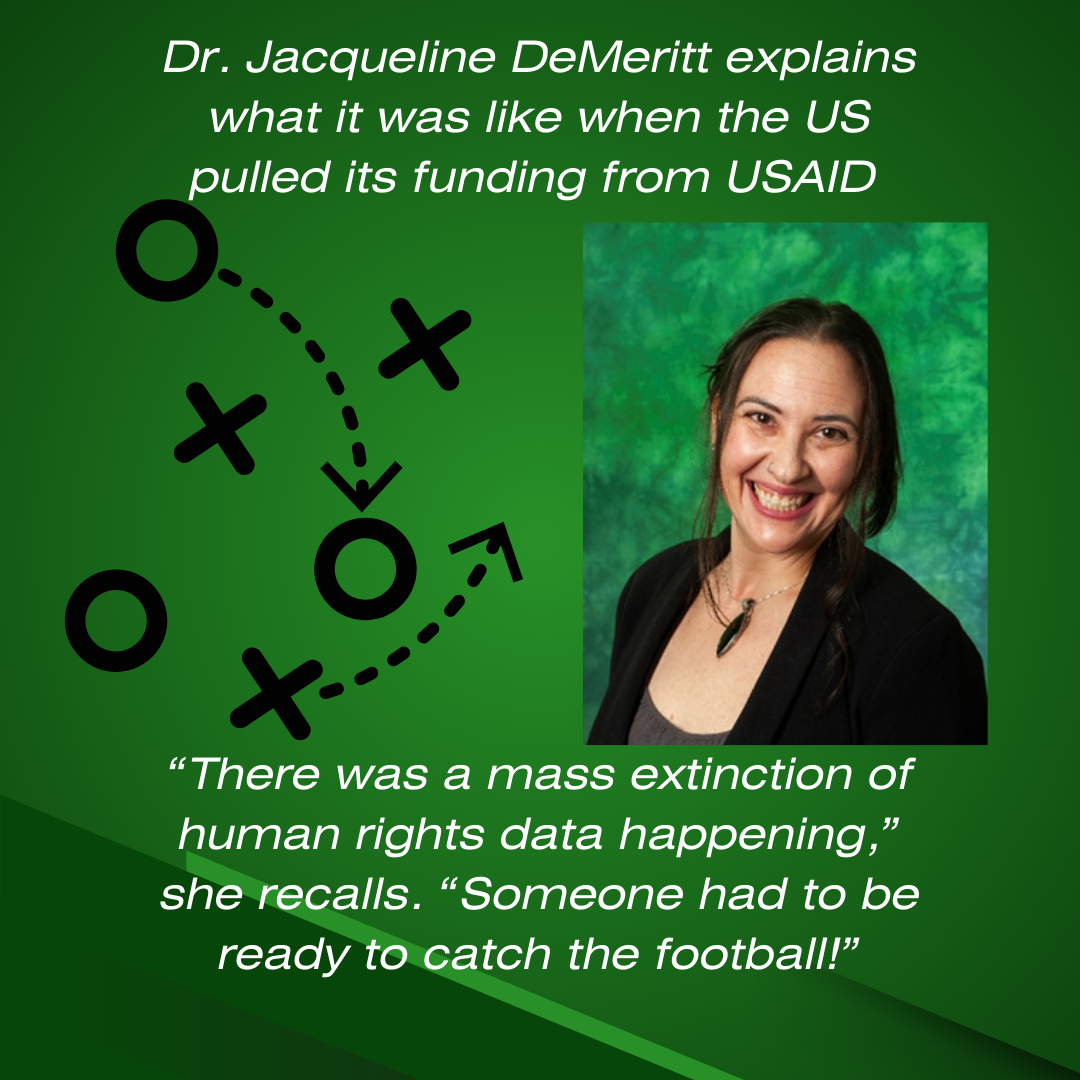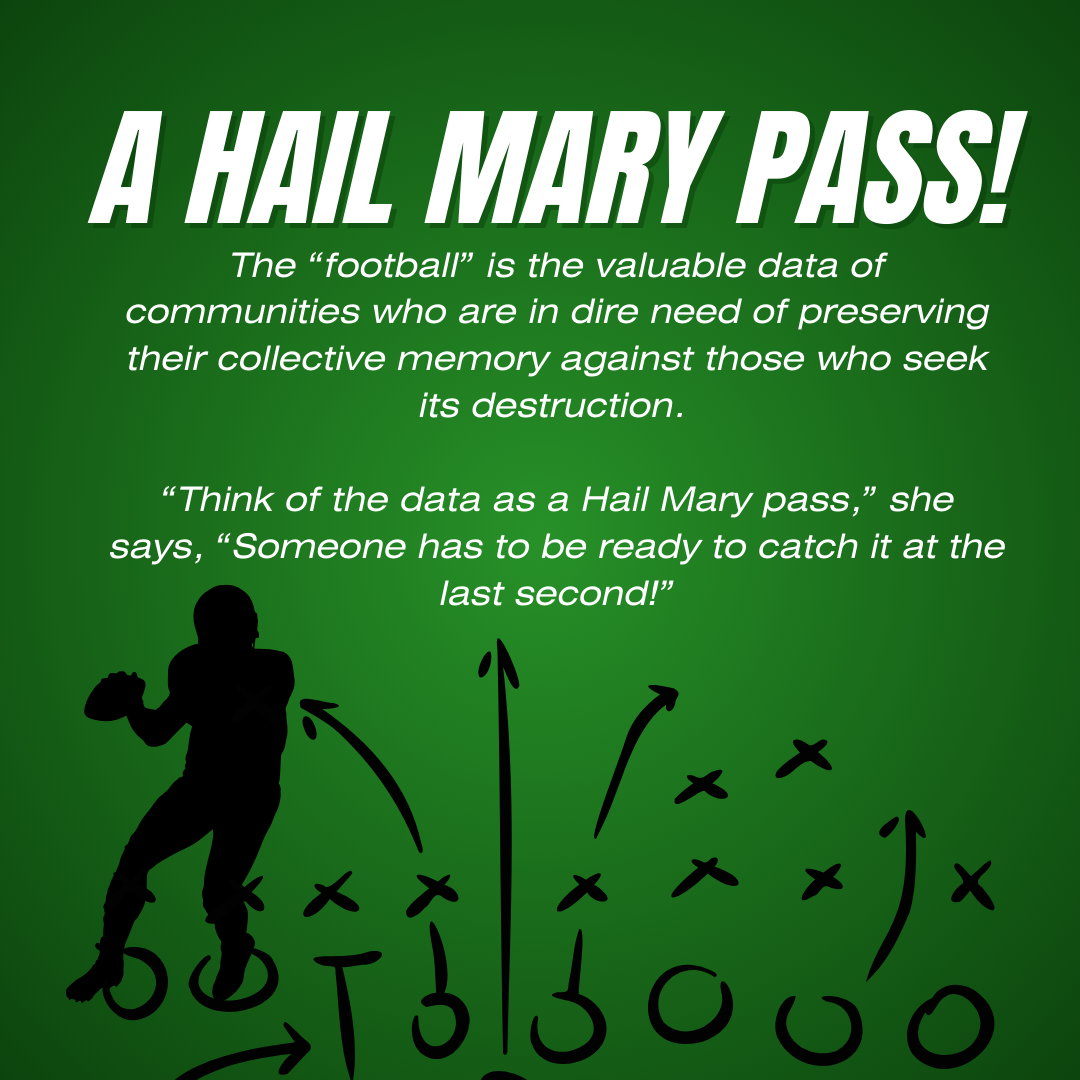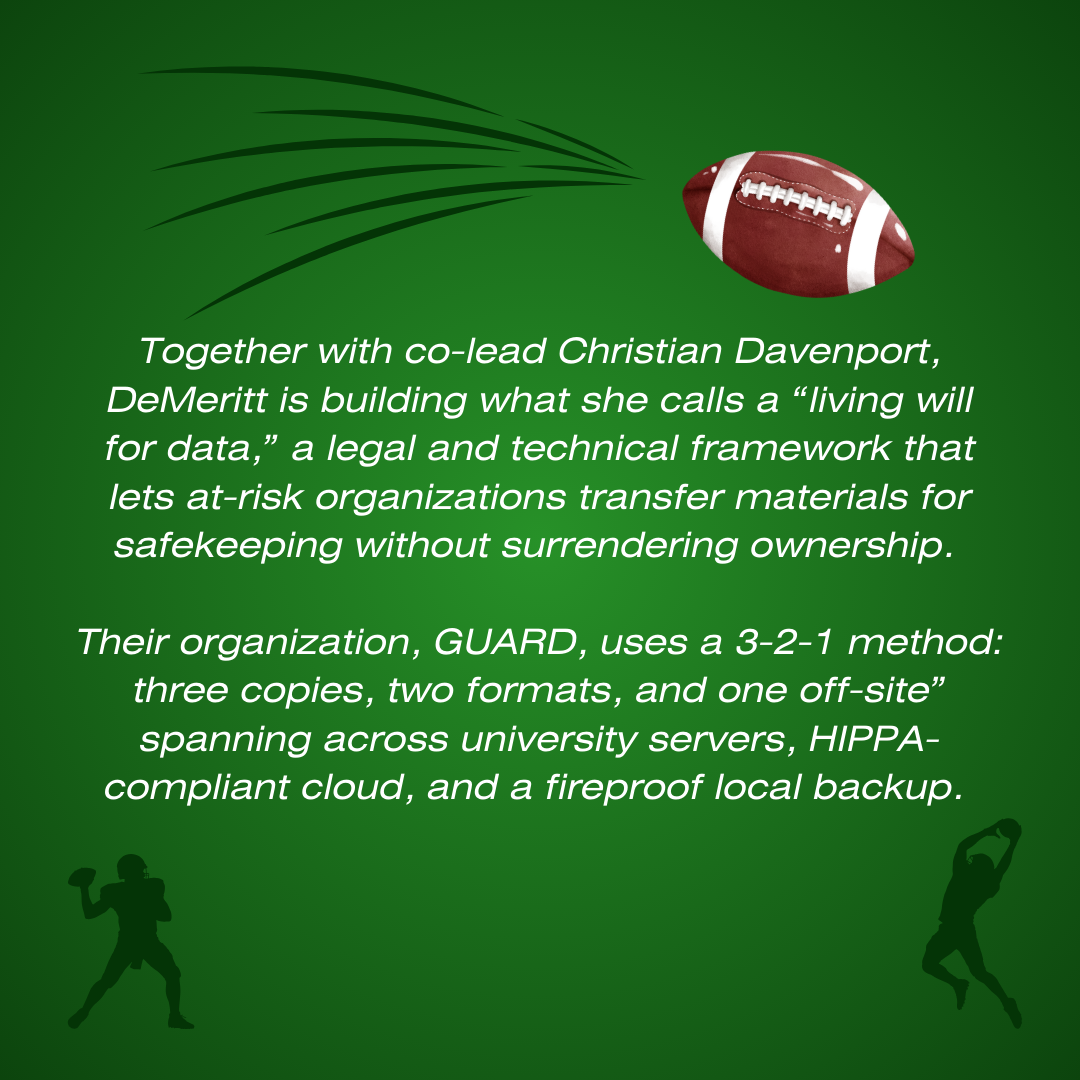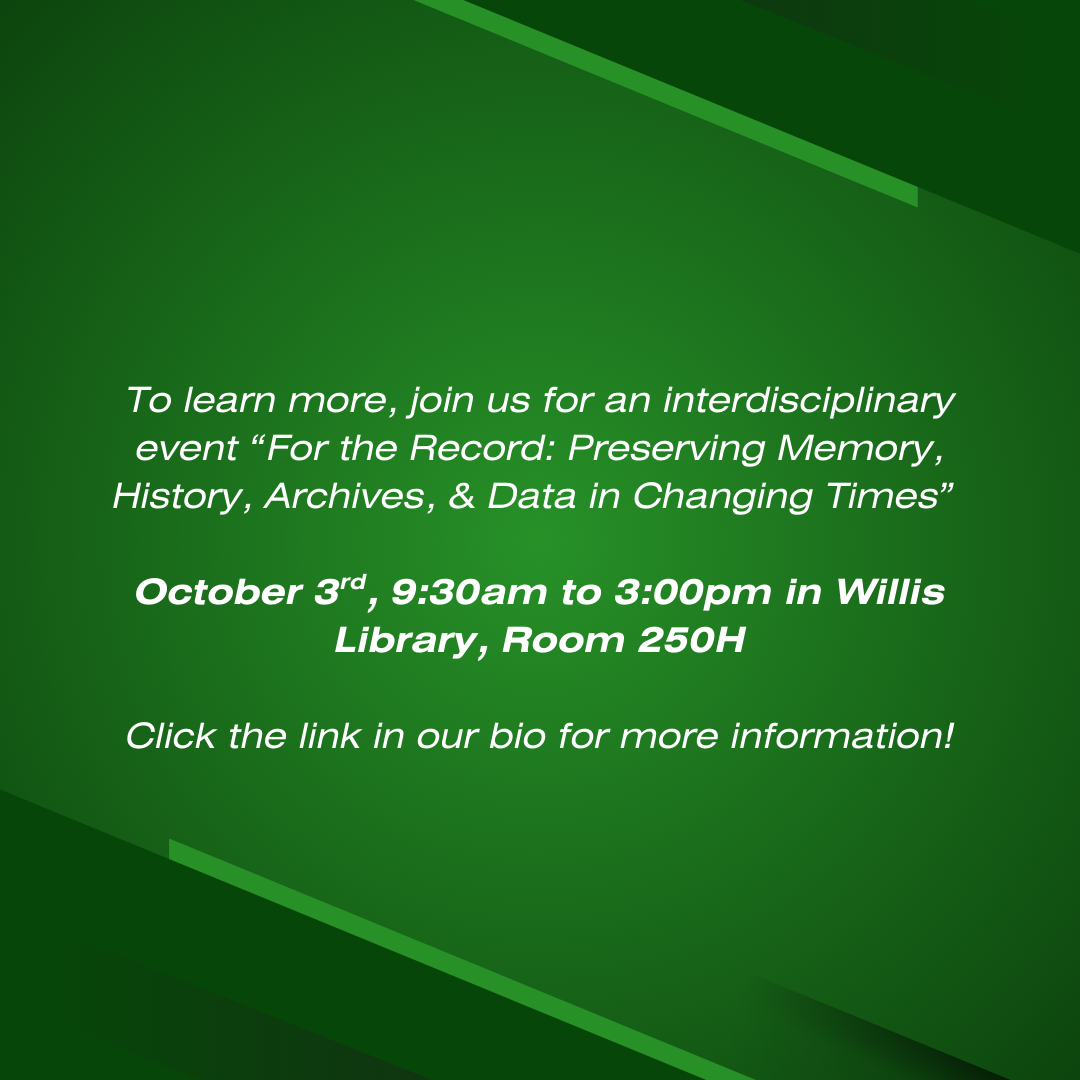
When Dr. Jacqueline DeMeritt talks about preservation, she does not start with servers or stacks. She starts with people: activists in Nigeria hiding notebooks under mattresses, survivors in Colombia stitching a quilt of their hopes, and students who will inherit the work. “There was a mass extinction of human rights data happening,” she recalls. “Someone had to be ready to catch the football.”
DeMeritt is a panelist at For the Record: Preserving Memory, History, Archives, & Data in Changing Times, held October 3 at UNT’s Willis Library. Representing the Castleberry Peace Institute (CPI) and GUARD, the Global Unified Archive for Rights Data, she brings to the conference a message that preserving collective memory is as human as it is technical.
Together with co-lead Christian Davenport, DeMeritt is building what she calls a “living will for data,” a legal and technical framework that lets at-risk organizations transfer materials for safekeeping without surrendering ownership.

GUARD’s answer to disappearing records is redundancy and respectful stewardship. Intake goes to encrypted local drives (“yes, literally a safe in my closet”), secure cloud, and mirrored storage across some 20 universities worldwide. Communities can later reclaim their materials. “Think of the data as a Hail Mary pass." Dr. DeMeritt explains, "Someone has to be ready to catch it at the last second.”
For DeMeritt, the most effective “tool” is not a scanner, it's trust. “We start by showing up, feeding the community, listening, being non-extractive,” she says. This groundwork enables mobile scanning of journals and artwork, high-quality audio for oral histories, culturally fluent translators, and triangulation, which means checking oral histories against military records, satellite imagery, and other archives to build credible truth.
She is clear about ethical lines: Universities are not built for chain of custody
on confidential legal evidence, and researchers must avoid re-traumatization by pairing
fieldwork with a psychosocial team to offer immediate and follow-up care. She emphasizes,
“we never interview without a psychosocial pair. Preservation should help people,
never harm them.”
Political upheaval risks both immediate destruction (servers, paper records) and permanent silence, when survivors cannot share stories amid ongoing danger. “You lose what you had, and you lose the chance to record what you never got,” DeMeritt says. Without accurate records, communities struggle to rebuild identity, and policymakers lose the evidence needed to prevent recurrence. “Most wars happen where they have happened before. Prevention depends on memory and on getting the memory right.”
Preservation is collaborative by design. DeMeritt describes teaming with data scientists on an AI approach to match 400,000 disappearance reports in Colombia with testimony from ex-combatants. This work could help families find answers.
At For the Record, she hopes to do preservation in real time: “If my colleague from Ukraine is ready, I want to sit down with my hard drive and back up her data during the conference.”
Behind this human care may appear bland but is critical to the safety of data. A data-management plan follows the 3-2-1 rule, which means three copies, two formats, one off-site. This spans secure university servers, HIPAA-compliant cloud, and a fireproof local backup. “If all three fail at once, we have bigger problems than one archive,” she jokes.
 UNT is a natural hub, DeMeritt says, because Castleberry already works at the intersection
of vulnerable communities and memory. But she is adamant the work cannot end with
current scholars.
UNT is a natural hub, DeMeritt says, because Castleberry already works at the intersection
of vulnerable communities and memory. But she is adamant the work cannot end with
current scholars.
Preserving memory is technical labor and deeply personal work. It is quilts and notebooks and voices in a booth. It is also safety, justice, and the possibility of peace. As DeMeritt puts it: “We all have skills. Use them to make a difference.”
Dr. DeMeritt is only one of the esteemed guests UNT will host in this panel and you can hear more about her work with GUARD this Friday, October 3rd in the Willis Library, located in room 250H. Readers can follow upcoming programs from the Castleberry Peace Institute and the Department of Political Science to stay engaged with these efforts, visit castleberry.unt.edu for more details!